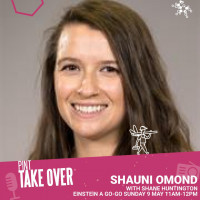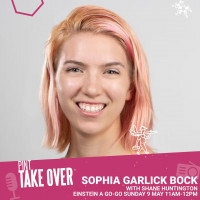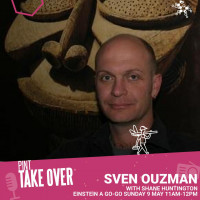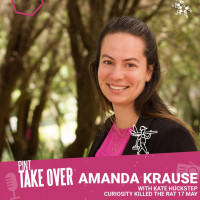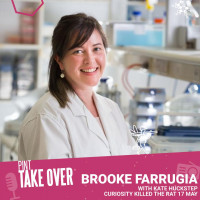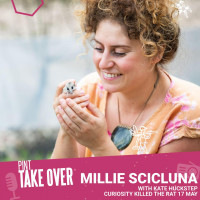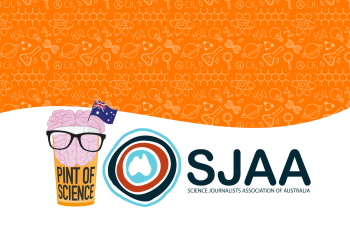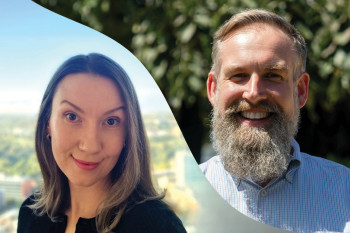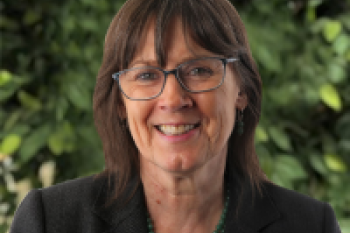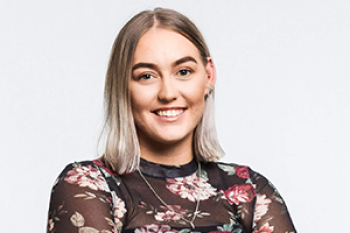© Pint of Science, 2025. All rights reserved.
Pint of Science Australia 2021 has wrapped up and after a few months of hard work, it’s time to reflect on the achievements of this year’s online festival. In the past, I had enjoyed coordinating events in Melbourne and curating a line-up of enthusiastic speakers ready to chat to the public in pubs across the city. When last year’s physical festival got canceled, I was part of the team of volunteers eager to pivot the festival to an online format. It was a way to bring Pint of Science to people, who could all participate in various events from the comfort of their own homes.
Whilst the decision to hold off returning to pubs and host physical events across the country this year was somewhat disappointing, I jumped at the opportunity to help reimagine the online festival to come up with a suite of better and bigger online events for people to enjoy. The imposition of yet another lockdown in Melbourne, where I am based, in the last week of May, confirmed that the decision to run online events again this year was the right one to make. I put my hand up to coordinate one of the many online projects that were going to be on offer and I got assigned a project that would allow me to develop new skills and make new connections. I was excited to learn about a world I personally hadn’t really explored much before - that of radio shows and podcasts.
In previous years, Pint of Science had been responding to requests from radio show and podcast hosts to recommend speakers for them to interview. This year, we took it a step further and actively sought collaborations with hosts across the country, who were excited to chat to Pint of Science presenters about their recent work. This became Pint Takeover. Our aim was to bring these conversations to people’s favorite podcasts and radio shows and I was thrilled by the response we got, both from hosts and presenters alike.
The project started with our small team researching suitable hosts for the project. We wanted to get a good representation of Australian podcasts and radio shows, and hosts interested in a variety of STEMM topics and put together a long list. We then contacted the hosts and nervously awaited to see if they wanted to get involved. Whilst responses were slow at first, which I worked out was because a lot of time podcasts and radio shows line up their presenters rather last-minute, a lot of hosts were keen to get involved. Altogether, the team facilitated 22 interviews during the month of May, involving 16 different hosts, with some of them wanting to organise several interviews to cover a wide range of topics.
Our next task was to research whom, amongst the many presenters that had expressed interest in getting involved, to recommend for specific hosts. Arguably, this was the most time-consuming task but I loved getting to know what these scientists were working on and I was getting excited to hear more about their research. Once hosts had confirmed their preferences, we put them in touch with the chosen guests to work out a suitable time and finalise the details. Our last task was to spread the word and organise promotion for all the interviews, on our social media platforms and on the website. Altogether, 33 presenters, from honours graduates all the way to associate professors, enthusiastically shared their work on the airwaves throughout the month. A few hosts were so happy with the interviewees, they expressed interest in having them back on their shows. We learned about tracking sea turtles from space, wound healing sugar polymers, smartphone-based devices for allergen detection, gravitational waves, math anxiety and so much more. If you missed those conversations, why not grab a cuppa and head over to the recordings?
It has been a pleasure working on this project with other volunteers, and I want to send a special thank you to Michelle Wille for her invaluable help and support in the past few months. I found it very rewarding to create more opportunities and provide another avenue for scientists to talk about the valuable work they do. I also really enjoyed being part of such an enthusiastic bunch, with a huge team curating a diversity of fun and engaging events for people with different backgrounds and interests to enjoy. There was truly something for everyone this year. Pint of Science volunteers, this year more than ever, were also offered the opportunity to upskill, with a variety of workshops on offer to help us learn what we needed for our respective projects, which I was grateful for. This year’s festival is now over, but I look forward to seeing what we can achieve next year and, hopefully, to being back in pubs if possible.
Elodie
Pint Takeover team lead
